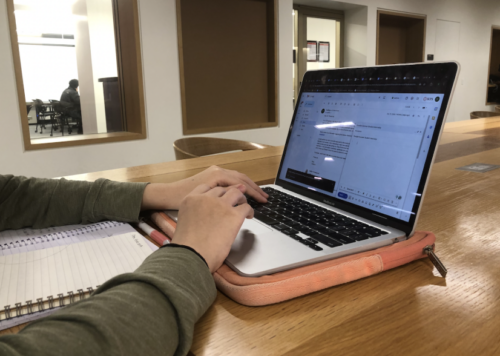The Science Research program, a two-year class led by Mr. Waldman and Dr. Koppa, is dedicated to students who are deeply passionate about learning science. The program allows said students to conduct research at a young age.
One of the course requirements is to secure a 4-6 week summer internship by the end of the first year. Internships provide students with first-hand experience working in fields in which they might want to find careers in the future. To find these internships, students email principal investigators (PIs) from various prestigious institutions in New York City, including Columbia University, Weill Cornell Medicine, NYU Langone Health and the CUNY Graduate School, asking to assist and learn in their labs over the summer.
Writing and sending emails to potential PIs in hopes of securing a summer internship is not an easy process. Science research teacher Dr. Koppa describes this part of the course as “highly independent” where the “students are really in charge of their own success.”
In the program, students take the initiative to find and read a research paper they are interested in and then thoughtfully craft a question based on the content before writing an email. After this process, they consult with Science Research teachers for feedback before sending.
Dr. Koppa said, “My job and Mr. Waldman’s job is that of facilitating, so setting you up to send an email that is well-written and thoughtful and direct. But also releasing you to have the freedom to take what you know and do it yourself.” The process can be scary and the “hope and dream is that everyone will secure a position.” However, there is a chance that when sending these emails to highly educated scientists, many will face rejection or no response.
Micaela Ramos (Form IV) expressed, “I thought that it was interesting to read their papers, but it was also kind of nerve-racking to try to find questions to send them, and then to actually send the email out was scary.”
Dr. Koppa considers this a key part of the course, expressing “Rarely do students hit the bull’s eye on their first email, and it can be really discouraging and disappointing… but having the self-confidence and the positive outlook to keep going and try again is really important so learning from lack of success is a really important part of maturing both in an academic sense but also a personal sense.”
Aside from the trepidation of reaching out to unknown people and the fear of not receiving a response, many students also found analyzing the PI’s paper one of the most challenging aspects of this process. To construct a sophisticated question based on a paper whose designated audiences are people with much more experience than high school sophomores is difficult. Students have to gain a deep understanding of the content.
“It’s a lot to break down because they use complex words… They tend to have a more academic tone for people who know their field, so it’s hard to comprehend, and you have to do a lot of outside research to fully understand the articles,” said Noah Topkins (Form IV). However, through the analysis of the publications with the support of the teachers, students learn many new scientific writing and analytical skills.
As they continue securing a summer internship, students prepare themselves for the next scientific journey, where they will conduct research this summer and later craft their own papers on what they learned over the summer in Science Research II.
Through the process of trial and error, research students gain qualities like perseverance, positivity, courage and resilience that will help them throughout their research journey and beyond.
To hear from science research students, click here!






